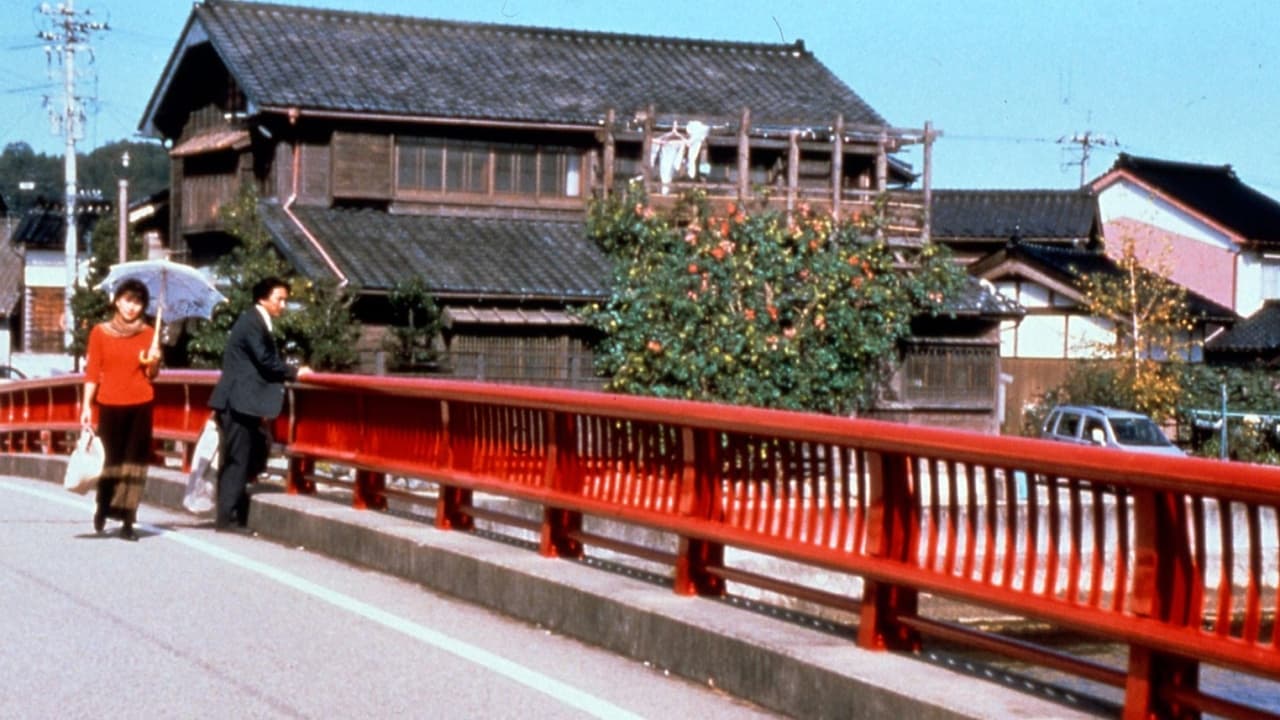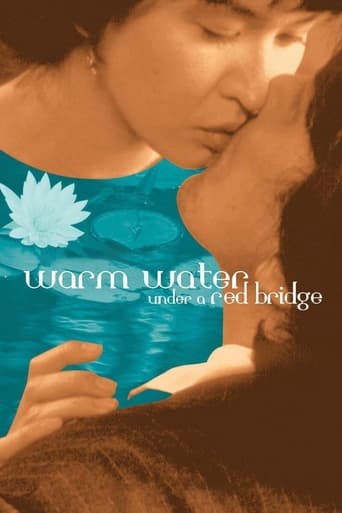Redwarmin
This movie is the proof that the world is becoming a sick and dumb place
Peereddi
I was totally surprised at how great this film.You could feel your paranoia rise as the film went on and as you gradually learned the details of the real situation.
ChampDavSlim
The acting is good, and the firecracker script has some excellent ideas.
tedg
What a joy.Most folks will focus on the warm water part of this. Its the story, rich in social commentary, Japanese mythology and sexual politics. Its pleasant enough I suppose, but for my taste it is barely adequate to support the real matter of this, the red bridge part.You see, sometimes it is enough to simply tell, and it almost matters not what is told, so long as it doesn't distract. Its the Van Gogh approach, I suppose, where he could literally plunk himself anywhere with proper light and paint what he encounters. Chair, tree, field. What matters to us is the manner of how he sees, and how he can convey that. Its the composition of his mind and how he tells a story about that while fooling us into thinking the story with the sound is the thing.Now, I like it better when its all integrated. but I'll take this too. What he does is typical of Japanese filmmakers, and indeed many Japanese artists. Each moment needs to breath within its own world, and that world confined only by the limits of its breath. Everything has to be balanced in a way that it seems to have grown that way with intrinsic wholeness.His method -- also typical of Japanese film -- is to see the frame of scene as the horizon of these microworlds. By this is mean both the visible frame of the sides of what we see, but most particularly its depth and the stroke between the points of beginning and end. Its not quite painterly because its a composition rooted in movement, and these dynamics are never to be found in static images.The story talks of a treasure hidden in this location. Toward the end, the story makes explicit that the treasure is the womb, the source of all rivers. You have to make the small leap to finish the fold, that each episode you see is a visit to a womb, the fresh smells of small life conveyed.What a joy.Ted's Evaluation -- 3 of 3: Worth watching.
Tilly Gokbudak
I must admit to discovering Imamora only recently. He has all the vivid cinematic detail, the edginess of Oshima, and the humor of Itami; but he is a unique and original master of Japanese cinema. I am delighted that a film like this is even available in America. And, I am not surprised that there have been people here who proclaim it to be a 'silly film.' The film is a great surreal satire. It examines the ridiculous nature of male sexuality, and how we as men are motivated by our fears that one day well 'our little soldier won't be able to salute.' I loved the scene where the title character outruns an African long distance runner so he can meet up with the nymphomaniac shoplifter who he has started to have relations with even though he knows very little about her. I love the way birds and fish are used to symbolize fear and desire. This is an intoxicating film. I saw "The Pornogaphers" earlier this year, and it is a delight to see that a brilliant filmmaker has not lost his touch, not remotely!
George Parker
"Warm Water...." begins with a woman in a market shoplifting while water gushes from between her legs and puddles around her feet - an intriguing opening for this meager Japanese comedy about a woman who sprays water like a fountain when having sex. Imamura seems to have painted himself into a corner as this curious story becomes only less and less interesting as time runs out with a less than apocalyptic conclusion. Nonetheless, there are some humorous moments along the way though most will not find the journey worth the time. For devotees of Japanese cinema only. (B-)
William J. Fickling
Why do so many great filmmakers, true masters of their genre, produce so much drivel in their later years? I am thinking of late Bunuel, Fellini, Antonioni, and now, regrettably, Imamura. It has only been four years since Imamura directed a truly marvelous film, "The Eel," and three years since the sublime "Dr. Akagi." Now we have the embarrassment of "Warm Water under a Red Bridge," in which realism and surrealism become intertwined and in which what some might view as the sublimity and sagacity of a great director's later years might appear more like an output of his dotage. If you admire Imamura and are a connosseur of his earlier and great films, save yourself the discomfort of watching this sad spectacle and go out and rent "The Ballad of Narayama." Or "The Eel."

